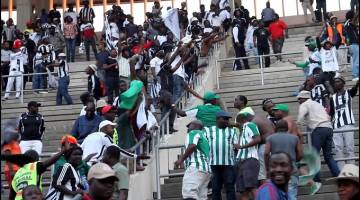The website that publishes opinion analyses, Spotlight Zimbabwe claims that ZANU PF President Emmerson Mnangagwa has agreed to resign. We issue caution that at the time of writing, these claims remained unverified. BELOW IS THE FULL TEXT
Itai Mushekwe/Mary-kate Kahari
COLOGNE/HARARE– President Emmerson Mnangagwa is reportedly due to tender his resignation as the country’s leader in less than twelve months, to avoid a humiliating exit, after failing to resolve Zimbabwe’s economic crisis and suffering an alleged business fallout with a powerful military faction rooting for Vice President, Rtd General Constantino Chiwenga, to either take over or name a successor to finish off Mnangagwa’s term, Spotlight Zimbabwe, has exclusively been told.
Furthermore and exacerbating Mnangagwa’s political woes, a ruling Zanu PF faction opposed to his rule and believed to be in bed with the opposition MDC Alliance, is said to have elevated plans to impeach him and possibly call for his arraignment in the killing of innocent protesters in August 2018 and early this year, when the country’s main labour body, the Zimbabwe Congress of Trade Unions (ZCTU) called for a three day stay-away.
Hitherto it was unbeknown in the public sphere, that Mnangagwa has also been dropped as “the money man” in businesses he was allegedly fronting for the army by securocrats aligned to VP Chiwenga, top level sources in government have revealed.
Mnangagwa is easily one of the richest people in Zimbabwe, according to Wikileaks cables written by a US envoy in 2001. The cables, however, do not provide an estimate of his wealth, but speculation is rife that his fortune could now be in the billion dollar club.
United Nations Security Council reports in 2002 and 2003, say Mnangagwa’s wealth was supplemented by his involvement as one of the illegal mineral exploiters in the Congo, through a company called Cosleg Private Limited. Cosleg is a joint venture company formed by a Democratic Republic of Congo-based entity Congo Comiex and the Zimbabwe Defence Forces’s company Operation Sovereign Legitimacy (OSLEG). The firm was established for the purpose of pursuing business opportunities in timber and minerals found in the Democratic Republic of Congo’s Katanga Province.
“The game is over for Mnangagwa,” said a senior army officer based at Tongogara Barracks in the capital. “There are many factors at play, and although he might put up a brave face in public, things have reached a boiling point and he’s going to be out very soon. Actually his resignation as Zimbabwe leader is to avoid a humiliating exit, because the top guns (military generals) are livid about his mortgaging of the country’s mineral wealth in opaque arrangements with foreign powers secretly hostile to this country. I can confirm that he has been given six months to wrap up his duties and step down no later than early 2020.”
The officer said Mnangagwa’s dethronement could come early as military intelligence has gathered that the opposition intends to stage massive winter protests, and continue with a series of shut-down campaigns to set the stage for his impeachment over the worsening economic situation.
In October last year, opposition legislator for Chitungwiza North, Godfrey Sithole, pleaded with Zanu PF lawmakers to join hands with his party to impeach Mnangagwa so as to save Zimbabwe from total collapse.
Another source in the defence ministry said the real reason Mnangagwa was being pushed out is that he was now out of favour with China, which has reportedly been asked not to release any loans to Mnangagwa’s administration by Chiwenga’s military backers, pointing out that his tenure was coming to a close and that the army is replacing him with another leader, set to be in power between 2020 to 2023, when the next presidential election is due.
Mnangagwa the highly placed source said is being eased out of control of business deals and ventures involving the army, in which he played a pivotal role including diamond mining partnerships with the Chinese in Chiadzwa.
“There is a misconception that Mnangagwa is the one who brought back the Chinese diamond company Anjin to mine diamonds in Marange after they were dismissed for corruption activity by President Robert Mugabe. It was the vice president (Chiwenga) who ordered for their immediate return after the 2017 November military intervention to remove Mugabe. Mnangagwa then conspired to bring in the Russians, through Alrosa diamonds and that did not go down well with the army leadership, as it was seen as a political checkmate attempt. You can also see the tug of war to control the country’s fuel supplies taking place behind the scenes. The military always wins, and Mnangagwa and his allies will be muscled out.”
A prominent Zimbabwean banker with links to the ruling party, now based abroad said he predicts a violent and humiliating ouster for Mnangagwa, who he suspects will try to buy time, to regularise some of the deals he struck in Eurasia this year, which are still in the pipeline.
“The president is living on borrowed time,” he said. “The mistake he made was to play poker face with China. They could have bailed him out with a massive economic package, but his finance minister was and is still negotiating with the IMF and World Bank for a similar package. The Chinese had planned to channel the Zimbabwe revival loan through BRICS, but with the Bretton Woods institutions which are rivals with BRICS coming into the country’s economic equation through the backdoor, Mnangagwa has sealed his own demise. The IMF will unfortunately at this moment not give us a cent, therefore he can’t fix the economy. That’s Mnangagwa’s waterloo.”
Our contacts close to the Office of The President and Cabinet (OPC) maintain that Mnangagwa has officially agreed to tender his resignation in private and that he will be out of office no later than May 2020.
“Yes, he has six months to wind up as president and will likely tender his resignation at anytime after this grace period,” they said. “They have also discussed about his retirement benefits and pension. Although he would not have served a full term, we understand the army is willing to award him all full benefits and pension of someone who has served a complete term.”
Ironically Mnangagwa himself in December 2017 gazetted pension and retirement benefits which a Zimbabwean former Head of State and Government should enjoy on retirement.The benefits were published in a Statutory Instrument of an Extraordinary Government Gazette in terms of Presidential Pension and Retirement Benefits (Services and Facilities for Former Presidents) Notice, 2017. Former leader Mugabe is the inaugural beneficiary of the entitlements.
Officials at the information ministry said they could not comment on sensitive presidential matters last night, referring all questions to Mnangagwa’s spokesman, George Charamba, whose mobile phone went unanswered on numerous attempts.
spotlight zimbabwe
Like this:
Like Loading...



























































































































































